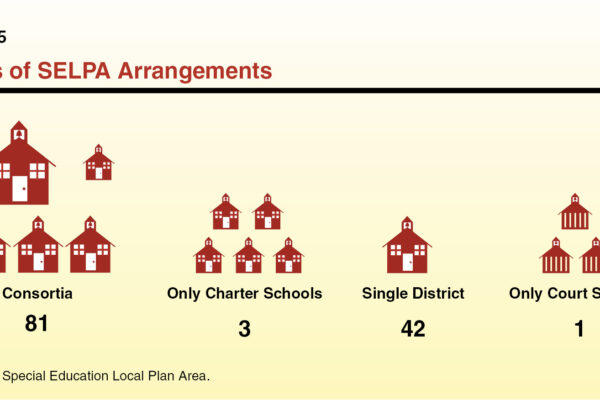As an educator, I have always been passionate about providing equal opportunities for all students to learn and thrive. Inclusive education is an approach that seeks to ensure that every student, regardless of their abilities or disabilities, has access to quality education. In this article, I will explore the importance of inclusive education for students with special needs, the benefits it brings to all students, the challenges and misconceptions surrounding it, strategies for teachers to implement inclusive education, how to create an inclusive classroom environment, the importance of collaborating with parents and caregivers, available resources and support, and some success stories of inclusive education. Let’s dive in!
Understanding Inclusive Education
Inclusive education is a concept that goes beyond merely placing students with special needs in mainstream classrooms. It is about creating an environment where all students feel valued and supported, regardless of their abilities. Inclusive education aims to remove barriers to learning and promote the participation and engagement of every student.
The Importance of Inclusive Education for Students with Special Needs
Inclusive education plays a crucial role in the development and well-being of students with special needs. When students with disabilities are included in regular classrooms, they benefit from the expertise of qualified teachers and the support of their peers. This not only enhances their academic growth but also fosters social interaction and emotional development.
Research has consistently shown that students with special needs who receive inclusive education experience higher self-esteem, greater independence, and improved academic achievement. They develop positive relationships with their peers, which leads to a sense of belonging and acceptance. Inclusive education promotes the idea that every student has something unique to offer and that diversity should be celebrated.

Benefits of Inclusive Education for All Students
Inclusive education is not only beneficial for students with special needs but also for their typically developing peers. When students of all abilities are educated together, it creates a diverse and inclusive learning environment. This diversity exposes students to various perspectives, cultures, and abilities, preparing them for the real world.
Inclusive education fosters empathy and understanding among students. It helps them develop tolerance, patience, and acceptance. Students without disabilities learn to appreciate and respect differences, while students with special needs benefit from the support and assistance of their peers. Inclusive classrooms promote collaboration and cooperation, which are essential skills for success in the 21st century.
Challenges and Misconceptions Surrounding Inclusive Education
While inclusive education has numerous benefits, it also comes with challenges and misconceptions. One common misconception is that inclusive education negatively impacts the academic performance of students without disabilities. However, research has consistently shown that inclusive classrooms have no adverse effects on the academic outcomes of typically developing students. In fact, it can lead to improved academic achievement for all students.
Another challenge is the lack of resources and support for teachers. Educators often require additional training, specialized materials, and support from professionals to effectively implement inclusive education. It is crucial for schools and educational institutions to provide the necessary resources and support to ensure the success of inclusive education.
Inclusive Education Strategies for Teachers
Implementing inclusive education requires teachers to adopt specific strategies to meet the diverse needs of their students. Differentiation is a key strategy that involves tailoring instruction to accommodate individual learning styles, abilities, and interests. This approach ensures that every student can access the curriculum and learn at their own pace.
Collaboration among teachers is also crucial in implementing inclusive education. Teachers should work together to share ideas, resources, and strategies to support students with special needs. This collaborative approach promotes a supportive and inclusive learning environment.
Another effective strategy is the use of assistive technology. Assistive technology tools and devices can help students with special needs participate fully in classroom activities and access the curriculum. From text-to-speech software to communication devices, assistive technology empowers students to overcome barriers and reach their full potential.
Creating an Inclusive Classroom Environment
Creating an inclusive classroom environment is essential for the success of inclusive education. Teachers can create an environment where all students feel valued and respected by promoting positive behavior, fostering a sense of belonging, and celebrating diversity. They can establish clear expectations, set up consistent routines, and provide a safe and supportive learning environment.
Teachers can also incorporate cooperative learning activities that encourage collaboration and interaction among students. Group projects, peer tutoring, and classroom discussions promote socialization and help students develop teamwork skills. By creating inclusive classroom practices, teachers can ensure that all students are actively engaged in learning and feel a sense of belonging.
Collaborating with Parents and Caregivers in Inclusive Education
Collaboration with parents and caregivers is a critical component of inclusive education. Effective communication and partnerships between teachers and families ensure that students receive consistent support and reinforcement at home and in school. Parents and caregivers are valuable sources of information about their child’s strengths, needs, and preferences.
Teachers can involve parents and caregivers in the educational process by inviting them to participate in parent-teacher conferences, school events, and decision-making processes. Regular communication through newsletters, emails, or phone calls can keep parents informed about their child’s progress and upcoming activities. By working together, teachers and parents can create a cohesive support system for students with special needs.
Resources and Support for Inclusive Education
Educators implementing inclusive education can benefit from various resources and support available. Professional development programs and workshops provide teachers with the necessary knowledge and skills to effectively implement inclusive practices. They can also join professional networks or online communities to connect with other educators and share ideas and resources.
Schools and educational institutions should allocate resources to provide assistive technology, specialized materials, and support personnel to teachers and students. Inclusive education requires a collaborative effort from administrators, teachers, support staff, and families to ensure that every student receives the support they need to succeed.
Success Stories of Inclusive Education
There are numerous success stories of inclusive education around the world. These stories highlight the positive impact of inclusive education on students with special needs and their typically developing peers. From improved academic performance to increased social inclusion, inclusive education has transformed the lives of many students.
One success story is the case of Alex, a student with autism who thrived in an inclusive classroom. Through the support of his teachers and peers, Alex developed strong social skills, improved his communication abilities, and excelled academically. His inclusion in the mainstream classroom not only benefited him but also taught his classmates valuable lessons about acceptance and empathy.










Comments on " Inclusive Education: Empowering Students with Special Needs for a Brighter Future" :